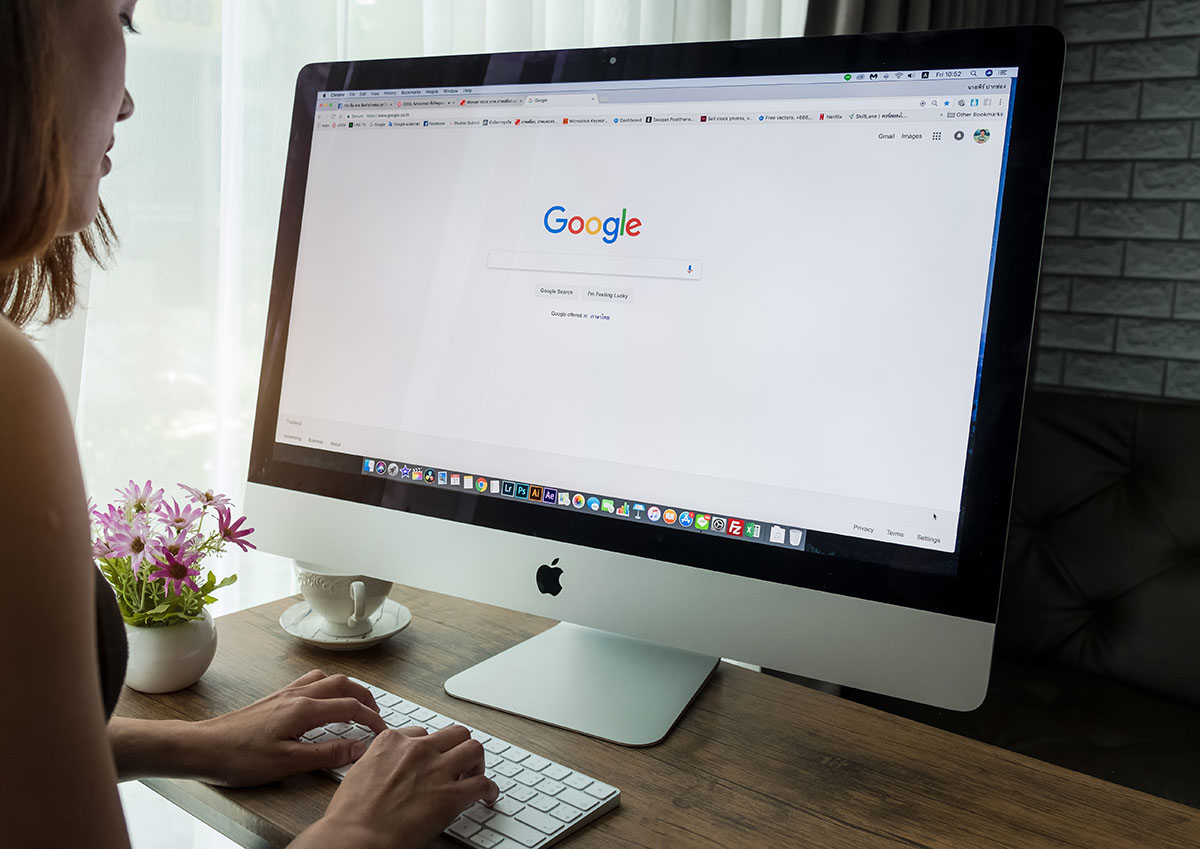Did you know that there are nearly 2 billion websites today?
With digital advertising becoming the norm in promoting your company, investing in it is a great move. But if you haven’t tried it before, you’ll feel confused about the difference between SEO ads and Pay Per Click (PPC) advertising. If you aren’t careful, you’ll end up getting a service that fits your business model poorly.
We’re here to help you out.
With this guide, we’ll compare SEO vs AdWords. Read on and find out the major differences between the two advertising strategies:
What Is SEO?
If you haven’t tried SEO before, know that this strategy involves optimizing your website’s design and content. Your goal is to rank higher on search engines.
When people use search engines like Google, the latter will do its best to show relevant web pages. To make it easier for your page to rank higher in relevant search results, you must use keyword integration, internal linking, and other optimization techniques.
Well-optimised pages will give your website more traffic. That means your conversion rates and ultimately your sales will improve. Since people mostly use Google, your SEO techniques should mostly cater to it.
Not convinced how big this search engine is? If so, know that it holds around 91.75% of the global search engine market. With that, you must know how the factors it uses to determine your site rank, such as:
1. Keyword Selection
The first step in improving your business rank is to pick relevant keywords for your website. Google picks your page rank based on the keywords you choose. That’s why you must use ones that relate to your page topics to ensure it will rank high on related search queries.
2. Content Quality
Google’s goal is to lead users to high-quality content. These should give the latter the information they need. When the content you make is long and informative, Google’s algorithm is more likely to give a higher rank for your website in its search results.
A well-written piece of content engages users to make them stay on your website longer. This sends positive signals to Google. If you’re consistent, the search engine will consider you a trustworthy website.
3. Site Security
Internet users are becoming more aware of privacy and personal information security. Google noticed this, so they check whether you have an SSL certificate. If you have none, the search engine is more likely to prioritise websites that do.
4. User Experience
Google aims to rank websites higher if they offer a positive user experience. What it means is that you must focus on improving how visitors experience your website. With that, leads spend more time on it and improve your ranking in the long run.
Here are some features you must have at the bare minimum:
- Easy navigation
- Headings
- Bullet points in content
- Visual aids
These are basic web design principles. As long as you follow them, you’re sure to have a better chance of ranking higher in Google and other search engines.
5. Mobile Compatibility
For the last couple of years, Google’s push for responsive design is palpable. It’s because of the rising number of people browsing the web using their mobile devices. Responsive design is paramount since it aids users to view your website regardless of the device they use.
Is your website unoptimised for mobile use? Stop for a moment and take the time to learn four easy ways to make the best mobile experience. That way, your ranking in search engines will increase.
6. Page Speed
Google announced two years ago that your website’s loading speed is a factor in determining your page rank. Take note, users want to access information rapidly. So, if your website’s loading speed is slow, you’ll likely fall to the bottom of the search results page.
A good website must load within 2-3 seconds. Otherwise, users will likely bounce from your web page, hurting your ranking even more.
What Are Google Ads?
Also known as Google AdWords, this platform promotes pay-per-click (PPC) advertising. This will allow you to reach people already interested in your products and services.
Google charges your PPC ads only when users click on them. It’s a cost-effective solution compared to traditional advertising methods like newspapers, television, and radio. It operates using a bidding system where you place bids for keywords you want for your ads.
The amount you bid is the money you’re willing to pay whenever users click on your ad. When bidding for a keyword, the ad appears in the search results when people use it. The positioning will depend on your bid and quality score, while your ad frequency depends on how much budget you have.
Here are several ad formats it uses to reach various audiences:
1. Search Ads
These text ads will appear at the top of the results page, above the listings with organic rankings. These ads will have the same appearance as their organic counterparts. The only except is at these will come with the tag “ad” for better identification.
2. Google Shopping Ads
These ads will use the carousel format that the top of the results page. It includes product images coming from various brands opting to use these for advertisement. These listings include prices as well, making it easier for people to canvass for the best prices.
3. Local Services Ads
Service companies like electricians and plumbers benefit the best from these ads. It’s a great method of attracting more leads within their area of service. These ads look similar to Shopping ads with their carousel format.
SEO vs AdWords: Which One is Better?
The primary difference between Search Engine Optimization (SEO) and Pay Per Click (PPC) is that the former gives you free, organic traffic. As for the latter, you have to pay a fixed price whenever someone clicks on your ad.
Regardless, both SEO and PPC are part of your Search Engine Marketing (SEM) efforts. It’s one of the major tools at your disposal that ensures the success of your digital marketing campaign. But which strategy should you focus more on?
Here are some parameters that can help you decide which method fits you more:
1. Search Results Position
As stated before, you can expect your PPC Ads to end up above organic search results. Also, these ads can appear on the bottom of the page. The placing of your ads will depend on a variety of factors like the keywords you’re targeting, but you’re guaranteed to appear on either of these.
For organic results, your listing will appear in the middle of the results page. Regardless, your position within this section will depend on your on-site and off-site SEO efforts.
2. Cost
As mentioned before, SEO traffic is free while PPC needs payment. It’s an absolute truth, but to get free traffic from search engines will require lots of effort and hard work. Almost every searchable keyword has high rates of competition.
To get on the top five positions on the first page, you must have a high-quality website. It goes without saying that you must have a concrete SEO plan to complement that. It has no shortcuts, even when some disreputable SEO companies say otherwise.
If you aren’t familiar with how search engines function or SEO in general, your best bet is to get an SEO expert to do it for you. This means “free” only applies if you have the knowledge of how to improve your website quality.
As discussed above, PPC only charges you for every click your ad gets. It means people can view your ad without you paying for it. Also, Google AdWords allows you to set a daily budget, calculate the average cost per click for your targeted keywords.
3. Traffic Potential
This is one of the most important questions you must ask when comparing SEO versus PPC. The former has more potential than the latter. The caveat is that you must rank your website for the keywords you desire to ensure that you get more traffic compared to when you pay for advertisement.
If you are in one of the top five positions, you’ll have an almost endless stream of traffic 24/7. It means you won’t have to pay anything as long as you maintain this position. The actual traffic volume varies depending on the popularity of the keyword you’re targeting.
So, when comparing the traffic and cost of the first-page positions for the two methods, SEO’s organic traffic is a better choice. Some studies say that PPC ads get more clicks, but this means you’ll have to pay a heavier price tag. Also, if you’re unlikely to get a first-page position for your desired keyword, a better option is to pay for traffic.
Take note, it’s almost unlikely for people to search the second and third pages of the results. That’s why if you aren’t confident that you’ll get to the top of your desired keyword, PPC ads are better. In case you pick this method, here is a guide to optimise your Google AdWords campaign.
4. Conversion
This parameter determines the likelihood for a visitor to convert and respond to your call to action. With this, it’s safe to assume that a visitor clicking from your PPC ad has a higher chance of conversion. It holds as long as you ensure to target your ads properly.
The reason is that web pages ranking for various keywords might not target the audience you want initially. It means your search visitor is searching for something within the content you present. That’s why even when you use the best keywords, you could end up with lots of people who click away after a cursory inspection.
On the opposite spectrum, a successful PPC campaign means getting clicks from visitors with 100% interest in your products and services. Again, keywords with high optimizations will get more conversions, as long as you’re willing to pay extra.
5. Ease of Use
Without the requisite knowledge and expertise, both SEO and PPC are difficult to do. The former is a continuous process taking lots of time and effort. You can expect months or years before you rank for a certain search term if you even rank at all.
PPC and AdWords require either taking a specialised course or a PPC expert. This will ensure that you get your desired results without spending too much.
In most cases, people who dive in without understanding how it works are likely to lose a few hundred dollars first. Take the time to learn how to find the best keywords for your PPC campaign.
Should You Invest in SEO or PPC?
When it all comes down to it, your choice will depend on which method best suits your business situation. It’s worth considering that both strategies benefit your business in various methods. Now, most people will look online when looking for recommendations, reviews, and answers.
Both SEO and AdWords aids in connecting your business with them, especially when they’re looking for things you can offer. The former is the cornerstone if you want success on your online marketing effort since it gives you the best odds of getting found. It matters not even when the process of optimisation takes a while to complete.
Google Ads will enable your business to reach customers faster, regardless of the size of your business. It also has campaign customization options you can use on the fly. Using both in tandem gives you the best fighting chance to bring more traffic to your website both in the short and long term.
Get SEO Services Today!
These are things you must consider when comparing SEO vs AdWords. Use them to decide whether they fit your marketing campaign.
Are you looking for an expert in both SEO and Google Ads? If so, contact us today. Let’s work together and bring out your website’s potential.




